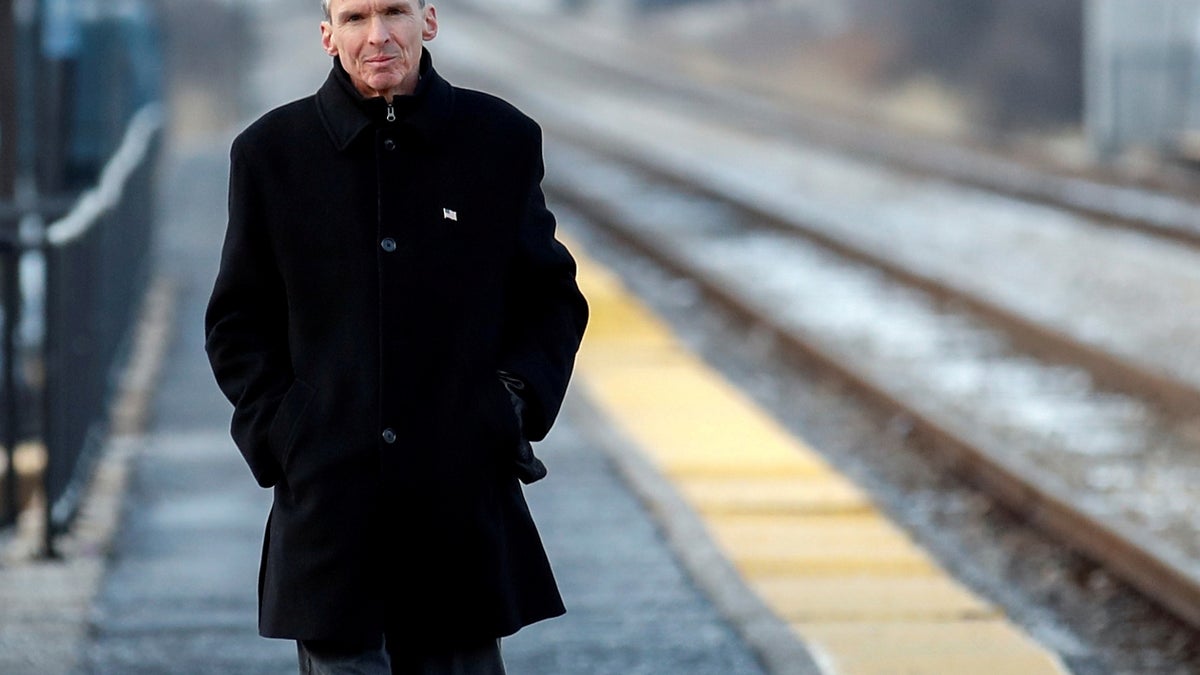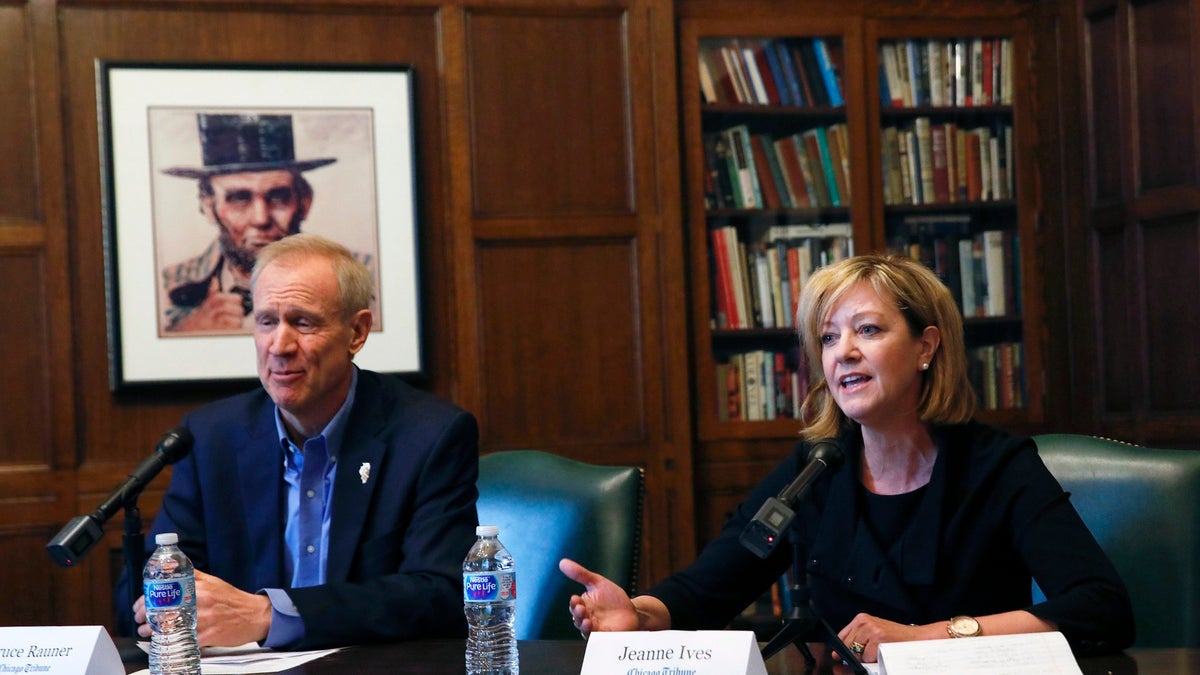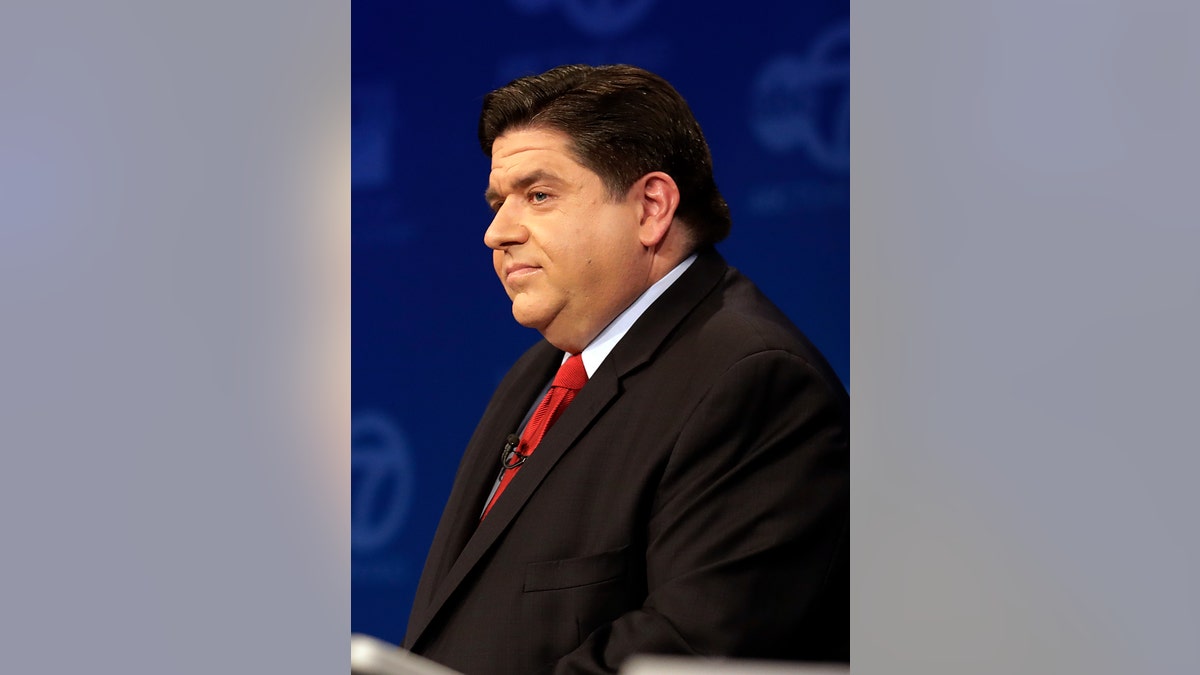It’s Primary Day in Illinois – and several races have politicos inside and outside the state fired up.
From the governor’s race to local elections, this year's primary became a test, of sorts, of just how far a candidate can stray from his or her party while still holding onto a seat.
For Illinois’s 3rd Congressional District, Democratic Rep. Dan Lipinski faces a more progressive challenger as members of his party seem frazzled by his anti-abortion stance. And Gov. Bruce Rauner, a Republican, faces a conservative challenger who has accused him of having “betrayed our party’s values.”
Read on for a look at what to watch as Illinois’ primaries get under way and what’s at stake.
Abortion and the Democratic Party

Rep. Dan Lipinski, D-Ill., faces a primary challenger as his stance on abortion is under fire within his own party. (Reuters/Kamil Krzacznski)
Rep. Dan Lipinski isn’t necessarily a conservative Democrat – but his stance on abortion has left him at odds with some of the more progressive voters in his party.
Lipinski, 51, assumed his congressional seat in 2005, and is being challenged by political newcomer Marie Newman for the 3rd District.
Newman, whose campaign website says she has “true Democratic principles,” is backed by progressive politicians and organizations, including Sen. Bernie Sanders and the Planned Parenthood Action Fund. She has called Lipinski a “full-on Republican” with a “far-right record.”
Lipinski, initially snubbed by his party’s own campaign arm, has garnered support from some conservatives, particularly those who are anti-abortion.
Lipinski called Newman and her supporters a “Tea Party of the left.” He said their intolerance for differing viewpoints within the party could end up hurting Democrats.
Rauner’s ability to hold onto his seat

Conservative state Sen. Jeanne Ives (right) is challenging incumbent Gov. Bruce Rauner (left) in the Republican gubernatorial primary. (Jose M. Osorio/Chicago Tribune via AP)
Governor Rauner, a Republican, has made a conscious effort to distance himself from President Donald Trump, especially during the primary. He’s also pushed through controversial legislation – including an abortion bill, – that has drawn criticism from those in his party.
In the primary, Rauner, 61, faces challenger Jeanne Ives, a state representative with a litany of fiscal and social conservative viewpoints. Ives, 53, has received endorsements from conservative publication National Review and local elected officials.
More so than Rauner, Ives has embraced the president and referred to Rauner as “lyin' eyes, lyin' mouth and hands” on the campaign trail.
“He's been very unreliable,” Ives told WGN-TV ahead of the election. “He's betrayed our party's values. Outside of that he's just not good on policy. He's made terrible decisions for this state.”
As for the Democratic nomination, the field includes: businessman J.B. Pritzker; Chris Kennedy, the son of the late Sen. Robert F. Kennedy; and state Sen. Daniel Bliss.
Battle of the billionaires

If J.B. Pritzker wins the Democratic primary, it could set up the gubernatorial general election to be the most expensive in history. (AP Photo/Nam Y. Huh)
If Pritzker wins the Democratic primary, and Rauner wins his, it could set up the gubernatorial general election to be the most expensive governors race in history.
The Pritzker family, including J.B., made Forbes’ 400 richest people in the U.S. list. The political candidate has an estimated net worth of $3.4 billion, according to Forbes.
As for Rauner, he’s not on the list, but his 2016 tax returns showed he made $91 million last year, WTTW-TV reported. In 2015, he took in $188 million.
Rauner’s top outside contributer, Ken Griffin, has an estimated net worth of $8.5 billion, according to Forbes – making him the wealthiest person in Illinois, WTTW reported.
Dr. Bruce Gaines, a political science professor at the University of Illinois, told Fox News that a Pritzker-Rauner matchup would also result in a “really negative campaign.”
“It will be a good experiment in just how negative you have to go before you drive voters away from the polls,” he said.
Democrats’ enthusiasm translates into turnout
As already evidenced in special elections such as Pennsylvania, Democrats’ enthusiasm in the second year of Trump’s presidential term is high.
“There’s a real indication of where the enthusiasm lies right now that we’re seeing in special elections since Trump won,” Gaines said. “Democrats are mobilizing and feel like they have to get out to vote.”
For example, in Marshall, Ill., about an hour south of Chicago, the Clark County Courthouse saw a record number of early voters, according to local media reports.
But don’t expect high turnout to necessarily remain staunch in the general election, Gaines warned.
“The primary vote is a good omen,” for Democrats, he said. “But it’s too early to say that’s what’s going to happen in the general election.”
The AG race could become very interesting

Erika Harold, the 2003 Miss America winner, is running for Illinois attorney general as a Republican. (Reuters/Susan L. Gregg)
Erika Harold, a former Miss America titleholder, is running for attorney general as a Republican – and she’s just what the GOP needs, Gaines said.
Harold is a minority female; a win for her in the primary and general elections could show that the Republican Party, even on a national level, isn’t just a party of “old, white males,” Gaines said, predicting that she’ll beat out Gary Grasso, the other GOP candidate in the primary.
A Harvard Law School graduate, Harold serves on the board of Prison Fellowship, a Christian ministry that provides outreach to those in jail. She found herself mired in controversy during the election after it was reported that she said she would prefer to give a foster child to known child abusers over a same-sex couple while competing for Miss Illinois in 2000. Her campaign said Harold did not recall making such a comment.
On the Democrats’ side, the race is more crowded – but it includes former Illinois Gov. Pat Quinn.
A Harold vs. Quinn matchup in the general election could make it “an unusually newsworthy and interesting race,” even on the national level, Gaines said.
But in order for that contest to happen, Quinn must beat out seven other Democrats: state Sen. Kwame Raoul, state Rep. Scott Drury, Highland Park Mayor Nancy Rotering, former Civilian Office of Police Accountability administrator Sharon Fairley, former Illinois State Board of Education chairman Jesse Ruiz, MSNBC legal contributor Renato Mariotti and Aaron Goldstein, a member of ex-Gov. Rod Blagojevich's defense team.
The Associated Press contributed to this report.



